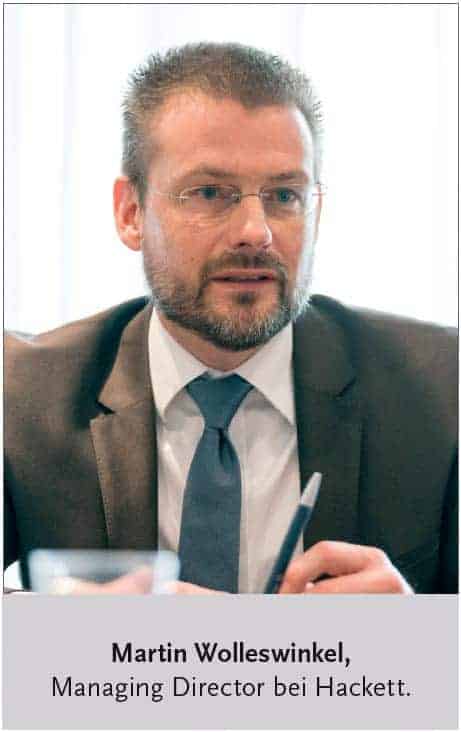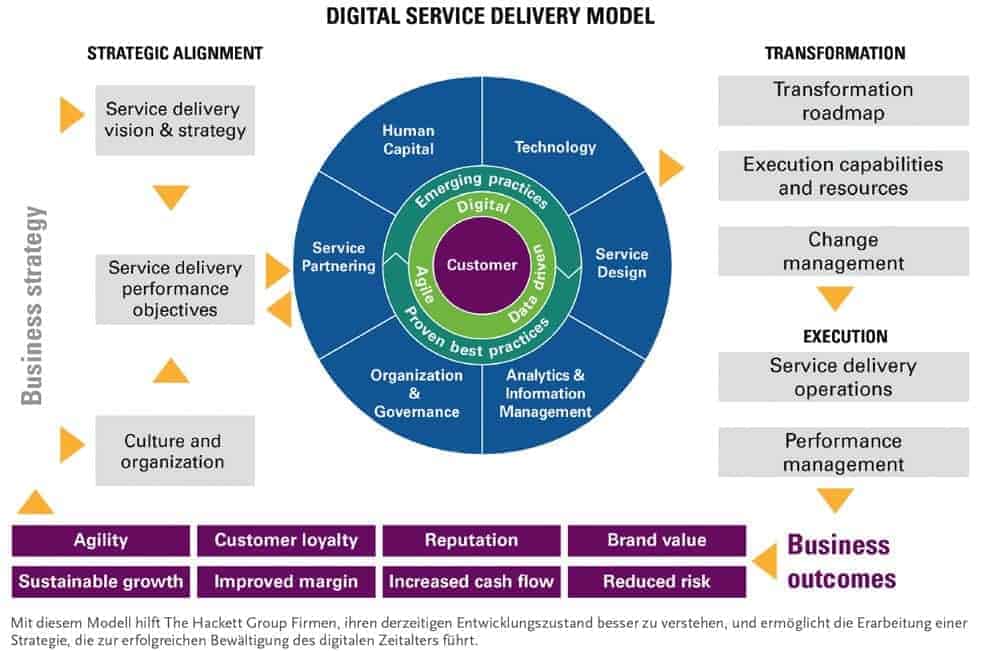Challenges for the financial organization


The digital transformation has significant consequences for both the core business and supporting functions such as HR, purchasing, IT and finance: New business models are emerging and the handling of business processes is changing from the automation of individual process sections to the digitization of the entire process chain.
Technology allows solutions to be designed that are precisely tailored to internal stakeholders or end customers. Moreover, this change is taking place at a speed never before perceived.
These are the factors that characterize digital transformation.In Hackett's annual survey of hundreds of chief financial officers, more than 90 percent of respondents expect a quantum leap in the performance of their function as a result of digital transformation.
At the same time, however, according to the caveat, only 44 percent of respondents say they have a strategy for realizing this potential. And only 35 percent think they already have the right resources in the organization to manage this change.
Effects on accounting
 Over the past decade, the Purchase to Pay and Order to Cash processes in particular have seen significant cost reductions, totaling 40 and 20 percent, respectively.
Over the past decade, the Purchase to Pay and Order to Cash processes in particular have seen significant cost reductions, totaling 40 and 20 percent, respectively.
But the costs of the Account to Report process (ATR - general ledger, intercompany, cost accounting, external reporting), on the other hand, fell only slightly.
By using digital technologies, it is expected that very significant cost reductions are possible, especially in the ATR area. For example, the use of RPA (Robotic Process Automation) in many companies is already leading to manual, repetitive and rule-based processes being carried out by a computer script (the so-called robot).
Further standardization, such as in materiality thresholds, master data, accounting procedures, and account reconciliation procedures, will become inevitable in order to effectively use the new technologies.
The ATR process then becomes more and more a continuous process instead of an inscrutable process that has its most important event once a month with the monthly closing.
The digitization of accounting processes is also changing the character of accounting staff: they are increasingly required to have the expertise to map new business models and processes systemically.
The focus is shifting more and more from pure execution to accompanying change projects. It is also to be expected that IT skills will be among the indispensable skills for ATR employees in the future.
Effects on controlling
In controlling, we have been observing a trend for some time now that is moving away from explaining the past to becoming an active management tool for the core business that is also concerned with shaping the future.
Planning cycles have dropped to less than 60 days at World Class companies due to a more consistent top-down planning approach with a greater focus on action planning than on just generating numbers.
The topic of driver-based planning has also picked up steam recently. Modern planning tools can help to make planning more effective, and the possibilities of Big Data make it possible to establish a better understanding of these drivers as well as better predictive capability.
Therefore, a current hypothesis is that in certain business models, the preview process can be (partially) machine-generated through the use of Big Data and corresponding algorithms.
Controllers will then be far more concerned than before with tracking measures and initiating corrective action.
This creates a controlling organization that can focus primarily on scenario modeling and evaluation, business partnering and change management. This in turn poses great challenges to the required skills of the controlling team.
The ability to store and analyze data in all its diversity and detail offers unimagined opportunities - but also risks. In addition to controlling itself, many companies are also experimenting with the new technologies in other areas such as R&D, sales and marketing, supply chain, and so on.
Data scientists are being hired and "data islands" are springing up everywhere. This creates an important task for controlling to coordinate these initiatives more closely so that no inconsistencies or even distortions arise.
For example, if the sales organization relies on unaligned algorithms to create a sales forecast, it could well diverge from the financial forecast, causing unnecessary irritation.
How can The Hackett Group help?
The Hackett Group has been using a successful model to help companies realize holistic transformation for more than 15 years. The model relied heavily on existing "best practices" (ways of doing things that world-class companies use consistently).
The digital transformation, however, requires that the "emerging practices" enabled by the rapid advancement of technology are now also taken into account.







